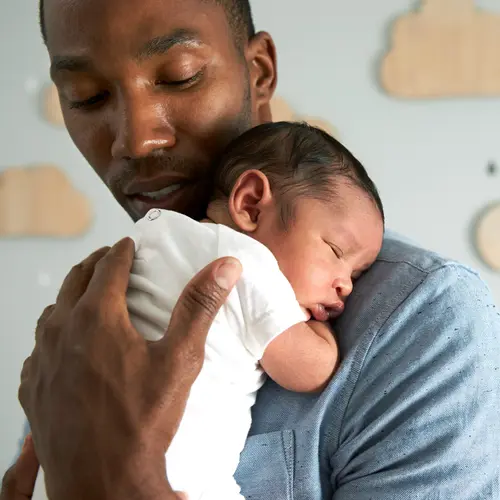In the U.S., 31.6 million people have at least one form of eczema. This skin condition affects all races, ethnicities, genders, and ages. But eczema can be slightly less or more common in specific groups.
Eczema and Age
Out of every 10 people, one will have eczema sometime in their life. You are more likely to develop the condition as a child. Today, around 9.6 million kids under the age of 18 in the U.S. have eczema. A third of these children have moderate to very bad forms of the condition.
The number of children with eczema continues to grow. The percentage of those affected has gone up from 8% to about 12% since 1997.
While most people with eczema first get the disease before the age of 6, studies show that at least 80% of these kids will outgrow the condition by adolescence or adulthood. Kids who have more intense forms of eczema are the most likely to have long-term symptoms. But the condition may still continue into adulthood in less serious cases.
Around 16.5 million adults in the U.S. have eczema that first showed up when they were under the age of 2. Out of this group, 40% of them have moderate to severe forms of the disease.
But this skin condition doesn't always show up in a person’s childhood. Twenty-five percent of adults with eczema reported that their condition began in adulthood. Most adults with eczema either had a chronic form that began in their childhood or a relapsing version that they thought had gone away. Other reasons for adult-onset eczema include:
- You may realize that you have eczema but not know or remember that you had childhood eczema because your symptoms were so mild. (In this case, it’s technically not adult-onset eczema, although you may believe it to be.)
- If you are from a humid, sunny, and tropical climate (such as Latin America or Southeast Asia), you might develop eczema if you move to a place with a drier climate.
- After pregnancy, you may notice the start of eczema or a worsened condition.
Experts don’t yet know if there are any major differences between adult-onset eczema and childhood eczema. But if you are over the age of 50 with no history of eczema, doctors may refer to a new case of the condition as “chronic eczematous eruption of aging.” But most adult cases of eczema show up before the age of 40.
Eczema and Gender
Eczema affects around the same number of girls and boys. But experts have found that the condition is more common in women than it is in men. In one study, researchers found that 9.1% of men had eczema while 11.1% of women had the skin condition.
The reason that eczema is more common in women may not have as much to do with specific gender differences, but more to do with the different activities common among men vs. women. One study suggested that hand eczema was higher among people in careers that were more female-dominated. These professions included hairdressing, catering, cleaning, and other care and service careers that involve water.
Eczema, Race, and Ethnicity
Some groups have a higher risk of eczema than others due to their genes. If you have a family history of eczema (or other similar diseases like hay fever and asthma), you are more likely to get the condition. This happens because of specific changes in your genes that affect your skin barrier cells and skin immune cells. These changes are passed down from older family members and are more likely to occur in certain ethnicities and races than others.
Overall, Native Americans and Asians or Pacific Islanders are the two groups that are most affected by eczema. Thirteen percent of each group has the condition. White people are the third most common to have eczema, at 11% of the population. And Black people are least likely out of the four groups to have the condition, with 10% of the population having eczema.
The numbers vary in different studies, but in the adult population alone, multiracial or white people appear to have the highest rates of eczema.
In the U.S., eczema affects more Black children and European American children than Hispanic children. But Black and Hispanic children have more serious cases of eczema.
Children have a 50% lower chance of eczema if they were born outside of the U.S. But this risk goes up after they’ve lived inside the United States for 10 years.
Eczema and Where You Live
Your environment also plays a role in how likely you are to get eczema. If you live in an urban setting or you’re around certain allergens (like mold and dust), you have a higher chance of getting the condition.
One study showed that people in high-income regions were more likely to have eczema. Other studies have confirmed that eczema rates go up in higher social and economic classes. In addition, the study found that those in metropolitan areas with more formal education tend to have higher rates of eczema. This could be because of things in the environment they’re usually around, like motor vehicle particle air pollution and modern fuels in homes (like kerosene).
Experts believe that eczema is more common in developed countries because of clean living conditions, childhood vaccines that lower infection rates, and antibiotic use. These things change your immune response and make you more likely to have atopic diseases, like eczema.

